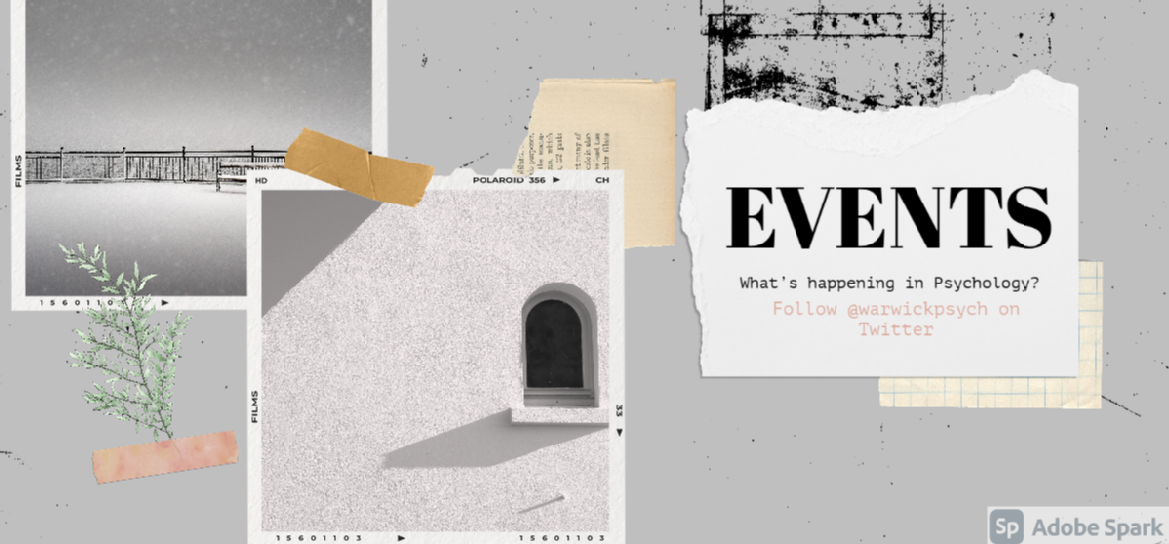Calendar of events

Wed 27 Nov, '24- |
Internal Seminar: How Are Individual’s Perceptions & Evaluations of Consumer Products Influenced by Individual Differences? by Tom White, University of WarwickH1.49 - Humanities BuildingAbstract: Research on motivations for, attitudes towards, and value derived from hedonic and utilitarian consumption is extensive. Similarly, mechanisms influencing consumer choices, such as anticipatory guilt, psychological distance, regulatory control, and construal level, are well-documented. However, less attention has been given to how individual differences affect evaluations of products along hedonic and utilitarian dimensions when no decisions are required. Such evaluations often serve as pre-tests for subsequent experiments but are rarely the primary research focus. Another underexplored area is collecting, a common behaviour among approximately 30% of Western adults. Despite its prevalence, Collectors are seldom included in quantitative studies, with idiographic, qualitative exploration preferred. Extant literature and the author’s own observations suggest that Collectors may uniquely perceive and evaluate consumer products. This talk investigates this uniqueness and engagement in collecting behaviour as a potential individual difference. The talk summarises the author’s PhD research to date, including three survey-based studies: with 178 UK Psychology students, and two representative US Prolific samples of 398 and 738 participants. Using Material Values, Hedonic Shopping Motivation, and Importance of Collecting as predictors, and hedonic and utilitarian ratings of 40 products as outcomes, results reveal novel patterns. Participants high in materialism, hedonism, and collecting importance rate hedonic products (e.g., Action Figures, Trading Cards) as less hedonic, and utilitarian products (e.g., Paperclips, Nappies) as more hedonic compared to low-scoring participants. These effects were then successfully replicated whilst simultaneously addressing potential methodological artefacts. This research sheds light on potential individual differences in product evaluations, particularly among Collectors and hedonistic/materialistic individuals, and presents further follow up research avenues. |
|
Wed 4 Dec, '24- |
Language and Learning Seminar: More than one: Insights into polysyllabic and multimorphemic word reading - Jana Hasenäcker, University of ErfurtMicrosoft TeamsSpeaker: Jana Hasenäcker, University of Erfurt Title: More than one: Insights into polysyllabic and multimorphemic word reading Abstract: Most empirical research on reading, as well as computational modeling work, centers on monomorphemic and monosyllabic words. However, the majority of words we encounter in real-world reading are longer and more complex, and it is in these words where the real challenges for readers lie. This talk presents an overview of my research from recent years exploring the cognitive mechanisms underlying the reading of polysyllabic and multimorphemic words. Key findings from behavioral and eye-tracking experiments reveal how both skilled and developing readers process these complex words, providing novel insights into orthographic, semantic, morphological, and prosodic influences on word recognition. Short bio Dr. Jana Hasenäcker is a post-doctoral researcher at the University of Erfurt, Germany. Her research focuses on the use of functional units (graphemes, bigrams, syllables, morphemes) and statistical regularities in reading and its acquisition. During her PhD at the Max Planck Institute for Human Development (Berlin, Germany), she investigated the developmental trajectory of morphemes as reading units in German across elementary schools. In her subsequent postdoc at the International School for Advanced Studies (Trieste, Italy), she explored form-meaning regularities beyond morphological relationships in Italian beginning and skilled readers. In her more recent research, she also explores the role of prosodic features in visual word recognition. Social media handles X: @JanaHasenacker Mastodon: @JanaHasenacker@mstdn.social Email Kirsty Green for a Teams Link. |
|
Fri 31 Jan, '25- |
COPR/WLS Research Seminar - ‘Spycops, Subversion & Collateral Intrusion - Hosted by Christopher BrianThe Junction - Room JX2.02You may be aware of the ongoing Undercover Policing Inquiry and articles in the media reporting on the “spycops” who, since the 1960s, have infiltrated the lives of UK activists and, in some cases, went as far a forging false relationships with women and fathering children.
On Friday 31 January, 1-2.30pm in JX2.02, the Centre for Operational Police Research (COPR) with Warwick Law School is hosting a seminar with Christopher Brian who set up the Undercover Research Group to support those activists most affected by the surveillance. Chris and colleagues have spent years piecing together the fragmentary and limited evidence that was in the public domain before the Undercover Policing Inquiry.
Further details are in the poster attached and the registration link is here. It would be great to see some psychology peeps at this event. I will send another reminder in the new year, but you might wish to save the date. |
|
Tue 1 Apr, '25- |
What are former Warwick Psychology PhD students doing now? - Dr Zorana Zupan and Dr Jacob Barker and Dr Sophie HardyMicrosoft TeamsHosts: Dr Suzanne Aussems & Dr Chiara Gambi Title: What are former Warwick Psychology PhD students doing now? Speakers: Dr Zorana Zupan and Dr Jacob Barker and Dr Sophie Hardy Abstract: In this session, three former Warwick Psychology PhD graduates will share insights into their career paths, both academic and non-academic, following their PhD. Attendees will have the opportunity to hear about their experiences, challenges, and successes, and engage in a Q&A session to ask questions and gain advice on navigating various career trajectories. |
|
